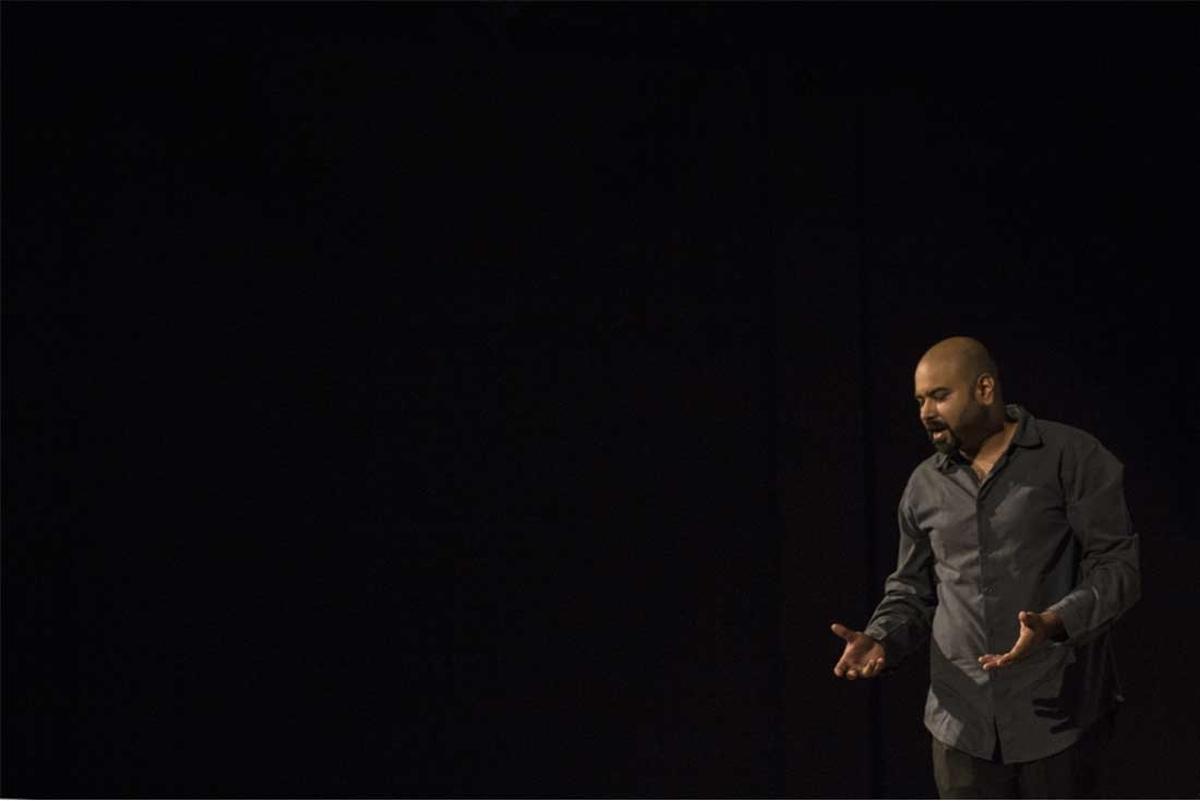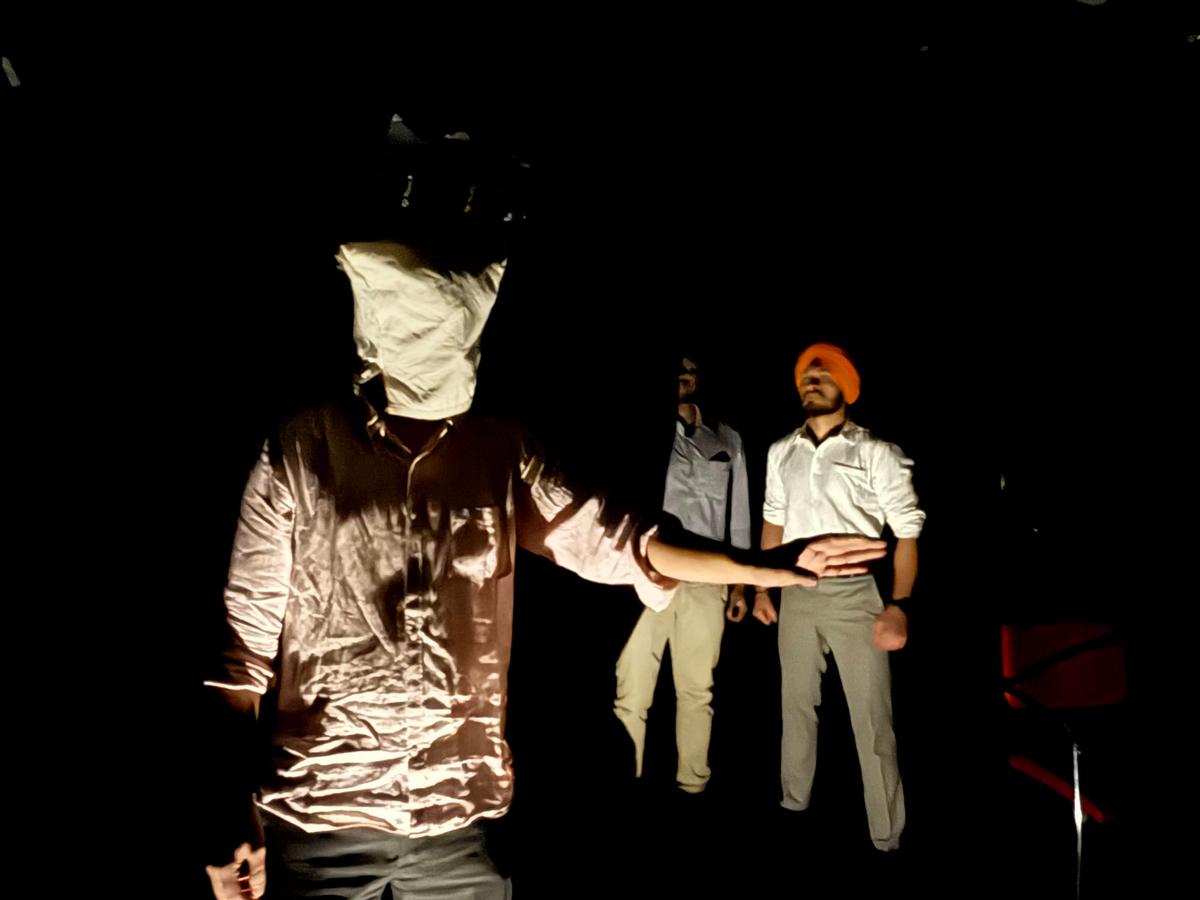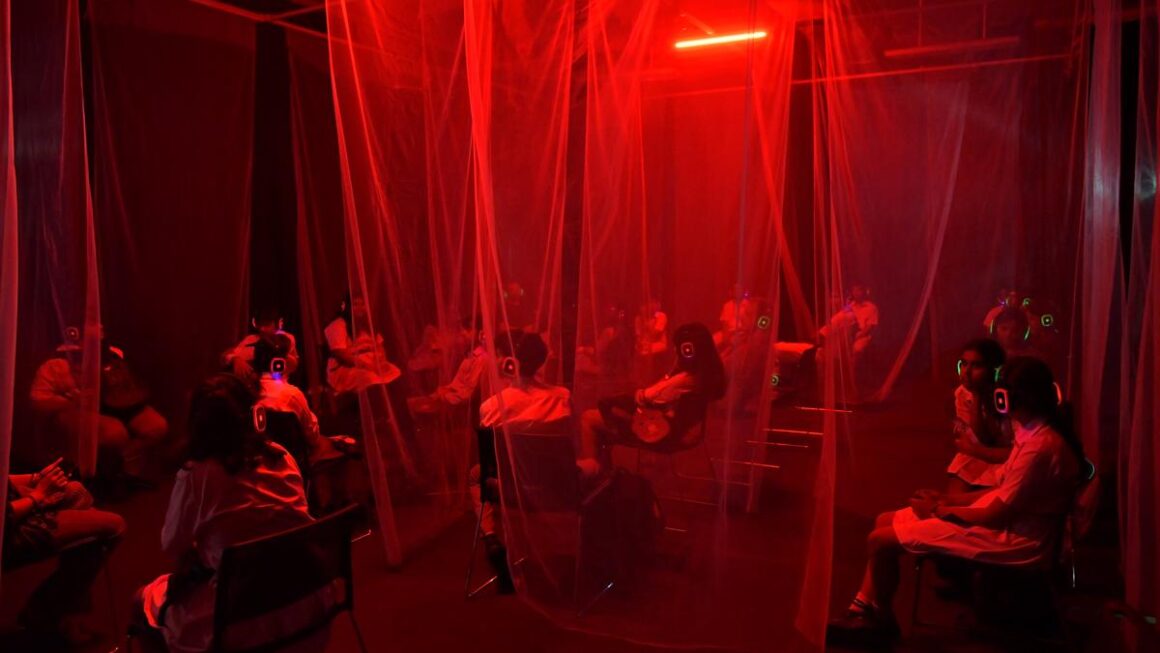
I, Josef is a 45-minute immersive and thought-provoking multimedia experience
| Photo Credit: Courtesy: Kaivalya Plays
Sitting in a dark room, a three-dimensional soundscape gets you to enter Josef K’s world. Armed with high-quality wireless headphones, you experience sounds as if they’re all around you — footsteps from behind, whispers from the side and the bustle of a courtroom.
Welcome to I, Josef, a 45-minute deeply immersive and thought-provoking multimedia experience that invites audiences to slip into the shoes of Franz Kafka’s most well-known character, who gets unexpectedly arrested and put on trial for an unspecified crime. This adaptation of Kafka’s Der Prozess (The Trial) is re-imagined through a unique first-person perspective that immerses the listener into K’s world through binaural audio. Presented by Kaivalya Plays in collaboration with the Goethe Institut/Max Mueller Bhavan, New Delhi, to celebrate #100YearsKafka, it was staged recently in slots with only 30 audience members in attendance at a time.
Relevant script
Kaivalya Plays’ general manager Gaurav Singh Nijjer has directed and designed the play
| Photo Credit:
Courtesy: Kaivalya Plays
Despite being written over a century ago, The Trial remains strikingly relevant in today’s world, particularly in India. According to Kaivalya Plays’ general manager Gaurav Singh Nijjer, who directed and designed the play, themes of bureaucratic complexity, the struggle for justice and individual freedom in the face of authority are more pertinent than ever. I, Josef aims to bring these themes to life in a visceral way, encouraging audiences to reflect on their own experiences with societal structures and personal freedoms. “The narrative of an individual suddenly arrested without explanation and entangled in an opaque, unyielding legal system resonates strongly with contemporary experiences. Moreover, the novel’s exploration of isolation and loneliness speaks to our modern condition, where digital connectivity often paradoxically leads to human disconnection,” elaborated Nijjer.
Armed with wireless headphones, you can experience every nuance of the play.
| Photo Credit:
Courtesy: Kaivalya Plays
I, Josef is a natural evolution of Kaivalya Plays’ long-standing interest in audio-based theatrical experiences, including radio play adaptations and immersive audio experiences, such as Lifeline 99 99. “We wanted to transform the third-person narrative into a direct, first-person encounter that challenges the audience to experience Josef K’s world from within. Throughout the performance, listeners are challenged to engage with Kafka’s themes on a personal level, feeling Josef’s confusion, despair and search for meaning as if they were their own experiences,” said Kaivalya Plays’ artistic director Varoon P. Anand, who scripted and adapted the play.
Sound technique
Adapting The Trial for binaural audio was a multi-step process. The team first rewrote the narrative to focus on auditory elements, ensuring that characters identify themselves and that actions are described through recognisable sounds. They then created a 3D soundscape using binaural recording techniques, which captured sound as it would be heard by human ears. “This allows for a fully immersive audio experience where sounds can be perceived as coming from different directions and distances,” explained Anand. Next, the team carefully selected and rehearsed with actors to find the right voices for each character, recording in both English and German. They procured state-of-the-art wireless headphones and other materials for the installation. Finally, they incorporated subtle projection mapping to enhance the overall immersive experience without detracting from the audio narrative.

Kaivalya Plays’ artistic director Varoon P. Anand has scripted and adapted the play
| Photo Credit:
Courtesy: Kaivalya Plays
Last month, Kaivalya Plays staged Martin McDonagh’s The Pillowman in the capital. An edge-of-the-seat dark comedy set in an unnamed totalitarian state, it tells the chilling story of a writer whose macabre tales of child murders blur the line between fiction and reality. The visually stimulating performance, which was performed under license from Concord Theatricals, blended different ideas of storytelling, including projection mapping, live transmissions and audio-video interactions with actors in real-time.

From Pillowman by Kaivalya Plays
| Photo Credit:
Special Arrangement
Kaivalya Plays plans to continue exploring innovative theatrical formats. Next month, they will present their two-year research on safety in the performing arts and artificial intelligence at the India Foundation for the Arts Research Conference in Bengaluru. In November, they will help a group of young artistes to debut as directors on the Delhi stage with a new self-written production The Golden Commode. They will also stage Mining Hate, an improvised interactive play about the disinformation attacks on Indian journalists that uses AI tools in real time. Further, their new improv team will stage Conspiracy Theory, a long-form improv comedy show about conspiracy theories. Apart from this, they will host workshops by artistes from Australia and Germany this month, bringing more opportunities for Indian artistes to learn from global performers, especially in the area of technology for theatre. “We envision creating performances that can travel beyond traditional arts spaces, entering classrooms, offices, courtrooms and even the Internet,” concluded Nijjer.
Published – September 16, 2024 04:52 pm IST


Leave a Reply